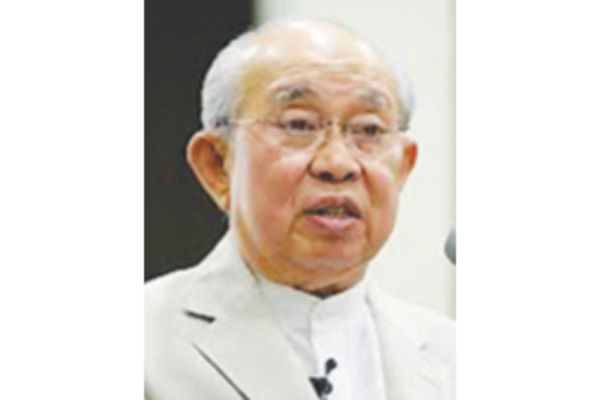5pc payment was S’wak’s idea, says Razaleigh
Published on: Friday, May 15, 2020

Kota Kinabalu: Setting up Petroliam Nasional Berhad (Petronas) was Sarawak’s idea, as well as the five per cent payment for the State from income garnered by the national petroleum company which is not referred to as royalty, said Petronas founding chairman and chief executive Tengku Razaleigh Hamzah (pic).He said the idea to set up Petronas actually came from Datuk Patinggi Abdul Rahman Ya’kub, who was then Chief Minister of Sarawak, as a solution to the legal conflict between the Sarawak State Government and Shell over oil money received for the oil extracted from within the State waters.
ADVERTISEMENT
“Abdul Rahman and many others suggested that we set up Petronas, which for Sarawak it is a solution to the conflict between Sarawak and Shell over oil money at that time.
“He (Abdul Rahman) also suggested the five per cent. Meaning what we get (the income of Petronas) we give five per cent from the income garnered to the State and five per cent to the Federal Government...but this is not oil royalty.
“While the remaining will be for Petronas to keep for oil exploration and investment in other countries, so it would guarantee that Petronas has oil and so on.
“He (Abdul Rahman) agreed to it, so why is the matter coming up again in Sarawak.
ADVERTISEMENT
“So it all came from him because he had discussed it with his State Cabinet then and he told me they (Sarawak elected representatives then) all agreed to it before he proposed it to me.
“I asked him and (Abdul Rahman) and he told me Sarawak setuju (Sarawak agrees),” Razaleigh said in a special interview in conjunction with Umno’s 74th anniversary recently, which went viral in social media.
ADVERTISEMENT
Razaleigh, who was founding chairman and chief executive of Petronas from 1972 to 1974, however, said it was not that easy with Sabah because the Sabah State Government, which was then led by late Tun Mustapha Harun as Chief Minister, did not agree to it (5pc payment to Sabah).
He recalled when he arrived in Sabah that time, Mustapha told him to get back into the aircraft and fly back to Kuala Lumpur.
“He (Mustapha) told me that he don’t want to talk about oil with me. Because he was angry with then Prime Minister Tun Abdul Razak because the Federal Government did not allow him when he told about his intention to borrow money from abroad, thinking that he might use the money for other purposes than on Sabah.
“That’s why we formed the Berjaya party to take down Mustapha, so the agreement on oil can be signed. Together with several people we set up Berjaya, persuaded late Tun Fuad Stephens to become its president, fight Mustapha and we won, and the agreement was signed...end of the problem,” he said.
Razaleigh said Petronas makes RM90 billion profit every year, which with only about RM40 billion of it would have generated about RM2 trillion throughout the 30 years period.
“Because Petronas makes a profit of RM90 billion every year, let’s say we just take 45 per cent from that while the rest let Petronas keep it for whatever it needs to do, including whatever sum it gives to the Government.
“If we take about 45 per cent, let’s say RM40 billion, if times it with 30 years, we will have about RM2 trillion.
“Our current population is about 32 million, so if we divide RM2 trillion to 32 million people, we cam actually have free universities, free hospitals and even can go to Umrah (pilgrimage) four times a year,” said the Gua Musang Member of Parliament.Stay up-to-date by following Daily Express’s Telegram channel.
Daily Express Malaysia




